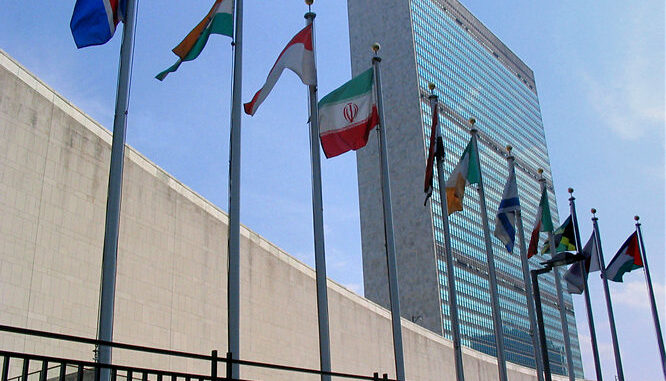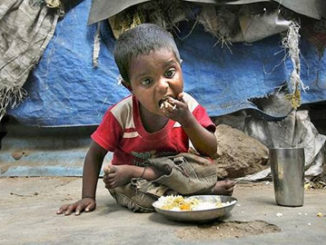
The UN’s failures in Nepal and the ongoing Russia-Ukraine war are indicative of its limited influence and resources. The UN’s efforts to prevent and resolve conflicts are often hindered by member states’ political agendas and lack of consensus. The UN must focus on addressing its shortcomings and strengthening its capabilities to maintain its relevance in today’s world. This includes addressing issues of inclusivity and representation, enhancing training and preparedness of peacekeeping missions, and finding innovative solutions to fund its operations. Once these parameters are fulfilled it is then a shared vision of international peace and security will materialize.

The United Nations, founded in 1945, was established with a vision to maintain international peace and security. It has played a critical role in addressing and resolving conflicts worldwide. However, despite its global influence and reach, the UN’s effectiveness in addressing conflicts has been widely debated. One such instance where the UN has failed to prevent a conflict is the ongoing Russia-Ukraine war. Additionally, the UN’s efforts in Nepal have also not been as robust as expected. With a staggering united front and with the participation of almost all the major nations of the world, why is the UN failing in its duties?
The United Nations was instrumental in Nepal’s peace process, which ended the decade-long Maoist insurgency in 2006. The UN played a crucial role in monitoring the ceasefire agreement and overseeing the disarmament of the Maoist army. However, since then, the UN’s engagement in Nepal has been limited. The UN’s political mission in Nepal, established in 2007, was concluded in 2019, leaving behind a fragile political situation. The absence of the UN in Nepal’s political landscape has led to the government’s inability to address critical issues such as transitional justice, inclusion of marginalized communities, and governance. Despite the UN’s efforts, Nepal has been unable to establish a stable and democratic government.
Similarly, the UN’s efforts to stop the Russia-Ukraine war have also been ineffective. The ongoing conflict between Russia and Ukraine had seeds sown back in 2014 when Russsia annexed Crimea. It also provided supprot to separatist rebels in eastern Ukraine. Since then, the conflict has claimed over 13,000 lives and displaced millions. The UN has been unable to stop the war and has been a mute spectator despite multiple resolutions and peacekeeping efforts. The UN’s inability to prevent the Russia-Ukraine war can be attributed to the veto power of the UN Security Council’s permanent members, including Russia. The UN’s limited influence and lack of consensus among member states have hindered its ability to resolve the conflict effectively. The UN relies on member states’ contributions to fund its operations, which can be unpredictable and insufficient. This limits the UN’s ability to provide essential services and support to countries facing conflict and instability. The UN’s peacekeeping missions have also been criticized for their lack of preparedness and inadequate training, leading to instances of sexual abuse and misconduct by peacekeepers.
In many instances UN has not enforced its mandate whether it is article VI or article VII. UN has failed miserably to maintain peace and rule of law in countries like Rwanda, North and South Sudan although it has the executive mandate as a supreme international organization. Talking about my own experiences, the UN should avoid lengthy bureaucratic processes and be more assertive to keep the spirit of its objectives in the field. A lot needs to be done to cut red-tapism and make actionable changes on the ground.
The UN’s failures in Nepal and the ongoing Russia-Ukraine war are indicative of its limited influence and resources. The UN’s efforts to prevent and resolve conflicts are often hindered by member states’ political agendas and lack of consensus. The UN must focus on addressing its shortcomings and strengthening its capabilities to maintain its relevance in today’s world. This includes addressing issues of inclusivity and representation, enhancing training and preparedness of peacekeeping missions, and finding innovative solutions to fund its operations. Once these parameters are fulfilled it is then a shared vision of international peace and security will materialize.
The United Nations has been involved in Nepal’s humanitarian work since the Maoist insurgency, which ended in 2006. The UN has provided essential support to Nepal’s development and peace-building efforts. Its activities include humanitarian assistance, capacity building, human rights monitoring, and the promotion of inclusive and democratic governance. One of the UN’s significant engagements in Nepal is the Truth and Reconciliation Commission (TRC). The TRC was established in 2013 to investigate human rights violations committed during the Maoist insurgency and the conflict with the state. The UN has provided technical and financial support to the TRC. The UN’s involvement in the TRC aimed to ensure that the process was impartial, transparent, and credible.
However, the TRC’s work has been slow, with limited progress made in the investigation and prosecution of those responsible for human rights violations. The TRC has been criticized for its lack of independence and transparency, which has led to mistrust and skepticism among victims and civil society groups. The TRC’s failure to deliver justice has also been attributed to the lack of political will and support from the government.
The UN has been actively engaged in addressing these challenges and supporting the TRC’s work. The UN has advocated for the TRC’s independence and transparency, provided technical assistance and training, and facilitated dialogue among stakeholders. However, despite the UN’s efforts, the TRC’s progress remains slow, and justice for victims of human rights violations remains elusive.
One of the reasons for the TRC’s slow work is the lack of political will and support from the government. The government has been criticized for its reluctance to address human rights violations and its failure to provide sufficient resources and support to the TRC. The TRC’s work has also been hindered by the lack of cooperation and information sharing from security forces, political parties, and other stakeholders.
Another reason for the TRC’s slow progress is the complex nature of the conflict and the challenges of investigating human rights violations committed during the Maoist insurgency. Many victims and witnesses fear retaliation and intimidation, making it challenging to collect evidence and testimonies. The TRC also faces challenges in investigating crimes committed by the state, including the security forces, which enjoy immunity under the law.
To be more robust and dynamic in Nepal, the United Nations (UN) must focus on addressing the country’s critical challenges and building on its strengths. The following are some ways the UN can be more effective in Nepal. Strengthening democratic institutions: The UN can support Nepal in strengthening its democratic institutions by promoting inclusive and participatory governance. This can include technical support for constitution-building, election monitoring, and capacity-building for political parties and civil society groups. Addressing social and economic inequalities: The UN can address social and economic inequalities in Nepal by supporting programs that promote access to education, healthcare, and economic opportunities for marginalized communities.
The UN can also promote sustainable development initiatives that address poverty, inequality, and environmental degradation. Strengthening peace-building efforts: The UN can continue to support Nepal’s peace-building efforts by promoting conflict prevention, resolution, and reconciliation. This can include supporting community-based initiatives for conflict resolution, facilitating dialogue among stakeholders, and promoting transitional justice and reconciliation processes. Promoting human rights: The UN can promote human rights in Nepal by providing technical support for human rights institutions, monitoring and reporting on human rights abuses, and promoting accountability for perpetrators of human rights violations.
Mobilizing resources, the UN can mobilize resources to support Nepal’s development and peace-building efforts by partnering with the government, private sector, and civil society groups. The UN can also encourage donor countries to increase their support for Nepal. Enhancing coordination: The UN can enhance coordination among its various agencies and programs in Nepal to ensure coherence and effectiveness in its work. This can include streamlining administrative procedures, sharing information, and promoting joint programming and resource mobilization.
The UN’s engagement in Nepal’s humanitarian work and the TRC’s establishment demonstrate its commitment to supporting Nepal’s peace-building efforts. Stringent efforts for actionable changes are the need of the hour and Nepal is in dire need. The TRC’s slow progress highlights the challenges of addressing human rights violations in post-conflict societies, including political will, independence, and transparency. The UN must continue to support the TRC’s work, advocate for justice for victims, and promote inclusive and democratic governance in Nepal.
(The author served as the 26th Chief of Nepal Police, holding a prominent position within the organization. In his professional journey, he contributed significantly to international peacekeeping efforts. At the United Nations headquarters in New York, he served as an Assessment Officer and Mission Manager in the Department of Peacekeeping Operations. Additionally, he demonstrated his leadership skills as a Formed Police Commander in Haiti. Moreover, his dedicated his expertise as a mentor and trainer to International Police Officers at the United Nations Mission in Bosnia and Herzegovina. Furthermore, he actively participated in the UNPROFOR mission in former Yugoslavia, fulfilling roles as a Police Monitor and Humanitarian Aid Officer)





Be the first to comment